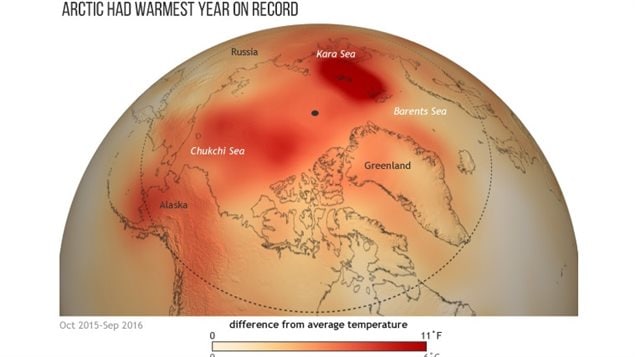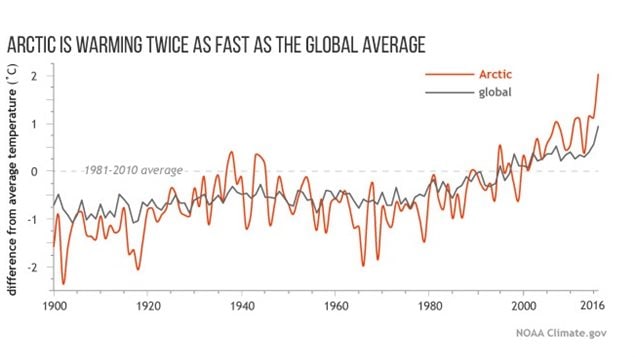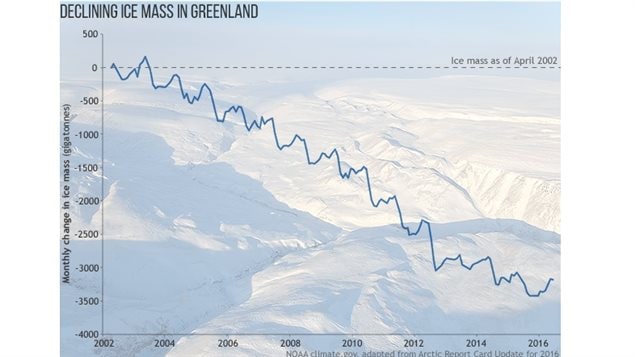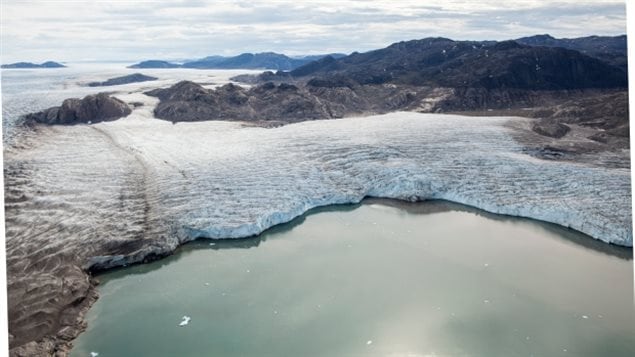The American National Oceanic and Atmospheric Administration has issued its “Arctic Report Card 2016”.
For most, the findings of the NOAA Arctic Programme will come as little surprise.

The Arctic report card has been issued since 2008, and this year the findings once again indicate the region is heating up and fast.
The findings for the year up to the end of September show it was the warmest on record since 1900 with monthly records in four of the 2016 months.

Satellite recording of snow cover which began in 1967, show this year had the lowest snow cover while summer minimum sea-ice extent was among the lowest since those records began in 1979.
As for the ocean temperature, it is increasing by about 0.5 degrees Celsius per decade between 1982-2010, and in August this year in the Barents and Chukchi Seas around Greenland, the temperature was 5.0 C warmer than the August average.

Greenland’s ice sheet which plays a crucial role in climate locally and globally continued its rapid melting, with the 2016 start of melting being the second earliest on record.
The report states, that the circumpolar region“ is collectively experiencing rapid and amplified signatures of global climate change. At the same time, the Arctic system’s response to this broader forcing has, itself, become a central research topic, given its potential role as a critical throttle on future planetary dynamics . Changes are already impacting life systems, cultures and economic prosperity and continued change is expected to bear major implications far outside the region”.
Warming is human caused, little chance it can be stopped at 2 degrees Celius T Homer-Dixon
Thomas Homer-Dixon is a researcher from the Centre for International Governance Innovation of Global Systems at the Balsillie School of International Affairs in Waterloo, Ontario.
At a farming conference in Ottawa last week he said, ““Global warming is happening and it’s caused by humans”.
He added that compared to the long-term average, the atmosphere now is failing to release into space about one watt per square metre of energy.
Although that doesn’t sound like much, he said the math adds up to the equivalent of 400,000 Hiroshima-sized bombs going off on the planet every day.
While the recent Paris climate accords hoped to stop warming at a global average of 1 degree Celsius, and try to limit it to 2 degrees, Homer-Dixon said, “There is a less than 20 percent chance that we will hold it to 2 C”.
NOAA VIDEO
additional information- sources







For reasons beyond our control, and for an undetermined period of time, our comment section is now closed. However, our social networks remain open to your contributions.